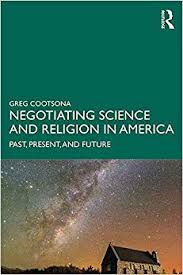Appropriately enough, this post arrives just the day before Valentine's Day. Science does in fact weigh in on what lies behind romance, and right off the bat, here's a timely article, "The Science of Love and Attachment."
The science of sexuality is also the second-to-last on my Top Eleven List of Topics in Science and Religion (adapted, by the way, from my book Negotiating Science and Religion in America) as I look at themes that are trending and that I plan to address in future posts.
#10. Science of Sexuality
At a conference a few years back on religion and science, I heard a colleague's work in which he analyzed the insights of science on our sexuality. He entitled it, "Sexy Science."
That's not a bad title, and probably beneficial for future book sales (should his work become a book). Most important, it's not entirely off-base. Although we used to think science wasn’t that sexy, that’s changed. In fact, one of the unexpected results that arose in my qualitative interviews with emerging adults (18-30 year olds) is their conviction that sexuality, gender, and sexual attraction are clearly part of what science and religion need to consider.
And Terry put her own "done-ness" with Christianity quite bluntly:
Sexual orientation "is proven in science that you don’t choose to be gay. Denying that makes you look ignorant.” Terry, 19 year old undergraduate
And this was not a stand-alone. But it was a surprise. In fact, one of the unexpected reactions to these interviews with twenty-somethings was that when I mentioned "religion and science," the response "sex" emerge frequently, probably as much as any other expected topic, like evolution, and certainly more than others I've discussed over years like, quantum cosmology and how the methods of science and theology interrelate. Put another way, topics previously considered secondary have become primary. And yet the themes of sexuality and gender, and particularly their relationship to science and religion, have not made it into textbook-length treatments of core issues in standard textbooks, because, most likely, these sources move more gradually.
I move to two conclusions.
My first conclusion is an observation: sex is a trending topic of science and religion because the importance is self-evident for emerging adults (18-30 years old). And we have to take in that fact. At the same time--and I've written a bit more about this elsewhere--I'm convinced that science should not entirely define this subject--or really, set of subjects that I'll put under "sexuality and gender"--like many other ethical or values topics. Good science should certainly inform, but not dictate, our ethics. And, I'll simply note here that bundled with sexual orientation is certainly gender identity and sexual ethics, topics that religions have certainly talked about and expressed their opinions.
My second conclusion is a set of questions: Are religious communities that reject gay and lesbian members or participants bigoted and scientifically ignorant? Will this tying of sex, science, and religion together make churches more resistant to engage for fear of controversy? What is the proper way to bring together science with biblical and theological convictions? And if we analyze why we are attracted to our valentine, does that steal away all the fun?
It is indeed a brave new world, but I believe we have already entered it, and we need to take in that reality.
And one final note: That's the second to the last of my Top Eleven, briefly noted, and I’m confident that you’ll have much more to add on this particular topic!



